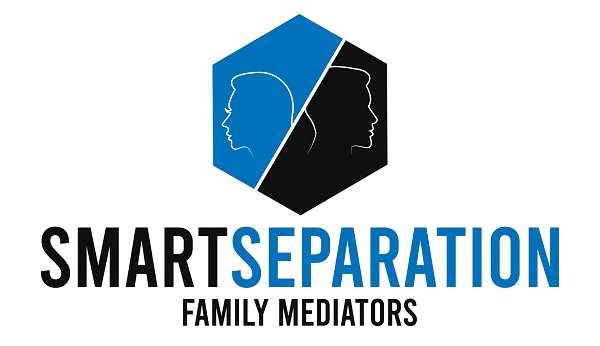What Sets Toronto Family Mediators Apart? (Local Standards & Accreditation)
August 11, 2025
Ontario-Specific Accreditation Standards
The Ontario Association for Family Mediation (OAFM)
In Ontario, the Ontario Association for Family Mediation (OAFM) serves as the principal professional body committed to upholding high standards of practice among family mediators. The OAFM promotes excellence in mediation through advocacy, ethical guidelines, professional development, and public education. Membership is voluntary but demonstrates a mediator’s commitment to staying current with best practices in the province.
Accredited Family Mediator (AccFM) Designation
To signal proficiency and professionalism, many mediators pursue the Accredited Family Mediator (AccFM) designation through the OAFM. This credential is a respected hallmark in Ontario’s family mediation community. The AccFM designation ensures that mediators:
- Have completed approved training programs, often involving a foundational 45-hour family mediation training, followed by advanced modules specific to Ontario’s legal and cultural context.
- Demonstrate a firm grasp of family law concepts, particularly the Children’s Law Reform Act, Family Law Act, and Divorce Act—legislation that governs parenting, support, and property matters in Ontario.
- Adhere to the OAFM’s Code of Ethics, which emphasises impartiality, confidentiality, competence, and respect for all parties.
Training, Supervision, and Practical Experience in Ontario
To earn and maintain the AccFM title, a candidate must meet stringent criteria encompassing training, supervision, and hands-on mediation experience:
- Core Training
Mediators must complete a minimum of 45 hours of basic family mediation training accredited or recognised by the OAFM. This foundational training covers mediation theory and practice, communication skills, ethics, and the legal landscape in Ontario. - Advanced Training & Continuing Professional Development (CPD)
Beyond basic training, mediators often pursue specialized workshops or advanced courses. These might focus on topics like child-inclusive mediation, high‑conflict cases, domestic violence, or Indigenous and multicultural family dynamics—areas particularly relevant in Toronto’s diverse communities. - Supervised Practice
Candidates are required to gather practical experience under supervision. Typically, this involves participating in a certain number of mediation sessions alongside an experienced accredited mediator who can provide feedback and mentor the candidate. The exact number of required supervised hours can vary depending on the training programme but ensures a consistent standard of quality. - Independent Practice Experience
Along with supervised experience, aspiring mediators must mediate a number of actual cases independently—from intake through to final agreement. This experience helps them apply learned techniques, manage real‑world dynamics, and understand client needs. - Ethics & Ongoing Adherence
Once accredited, mediators must abide by the OAFM’s Code of Conduct, which emphasises neutrality, confidentiality, informed consent, and cultural competence. Accredited mediators must also engage in ongoing professional development—attending workshops, conferences, or additional training to maintain and enhance their skills.
Communication and Conflict Resolution Skills
Use of Trauma-Informed, Child-Focused, and Culturally Sensitive Approaches
Toronto mediators are increasingly adopting trauma-informed practices, especially in cases involving past abuse, emotional trauma, or high-stress separation. A trauma-informed approach recognises how past experiences shape current behaviour, helping mediators:
- Avoid re-traumatisation
- Build trust gradually
- Empower participants with choices during the process
Mediators also take a child-focused approach, ensuring that decisions made by separating parents prioritize the well-being of their children. Parenting plans and co-parenting arrangements are framed around the child’s emotional, developmental, and practical needs.
In a city as diverse as Toronto, cultural sensitivity is key. Mediators trained in cross-cultural communication understand that family norms vary across cultures. They adapt their language, pace, and methods accordingly—while remaining neutral and respectful of both parties.
Techniques for De-Escalating High-Conflict Situations
Not all families arrive at mediation ready to compromise. That’s why Toronto family mediators use proven conflict de-escalation techniques, such as:
- Active listening and reframing emotionally charged statements
- Setting ground rules for respectful dialogue
- Using caucusing (private sessions) when needed to reduce direct conflict
- Helping parties focus on future solutions rather than past grievances
These techniques help keep the process productive—even when emotions are running high.
Support for Emotionally Charged Discussions in Family Disputes
Family separation often brings grief, anger, and fear to the surface. A skilled Toronto family mediator recognises these emotional undercurrents and provides empathetic support while keeping discussions focused.
Professionalism and Ethical Conduct
Choosing a Toronto Family Mediator means entrusting someone with one of the most sensitive periods in your life. That’s why professionalism and ethics are non-negotiable standards in Ontario’s family mediation field.
Adherence to Ontario’s Code of Professional Conduct for Mediators
Accredited family mediators in Ontario are bound by a Code of Professional Conduct, typically enforced through organisations such as the Ontario Association for Family Mediation (OAFM). This code outlines the ethical responsibilities of mediators, including:
- Maintaining confidentiality of all mediation communications
- Avoiding conflicts of interest
- Ensuring voluntary participation
- Respecting the right of each party to seek independent legal advice
Toronto mediators must also perform screening for power imbalances and domestic violence, in compliance with Ontario’s family mediation standards. This ensures that the process remains safe, appropriate, and fair for everyone involved.
Ongoing Professional Development and Education
The field of family mediation is continually evolving—with new case law, conflict resolution models, and cultural considerations emerging all the time. To stay current, professional mediators in Toronto regularly participate in:
- Continuing professional development (CPD) programs
- Advanced training in areas such as high-conflict cases, mental health awareness, and cultural competence
- Peer review and mentorship opportunities, particularly for newly accredited mediators
Accredited mediators are often required by their professional associations to complete a set number of CPD hours annually, ensuring their skills remain sharp and up-to-date.
Commitment to Impartiality and Respect for Both Parties
Impartiality is a cornerstone of ethical mediation. A Toronto family mediator must remain neutral throughout the process, giving equal space and respect to both parties regardless of background, gender, or perceived power. This means:
- Avoiding any conduct that could suggest bias or favouritism
- Managing the session environment to ensure both parties feel safe and empowered
- Intervening when one party dominates or attempts to intimidate the other
Local Accessibility and Service Options
In-Person and Virtual Mediation Availability
All family court locations across Ontario—Toronto included—offer on-site mediation services for individuals attending court the same day. This is typically provided at Family Law Information Centres (FLICs) and includes up to two hours of mediation at no charge.
For those not in court, or requiring more time, off-site mediation is available—either in person or virtually. Clients are offered up to eight hours of mediation, with fees calculated on a sliding scale based on their income and number of dependents. Services commonly take place at community hubs or via video and telephone.
In Toronto’s private sector, many mediators also provide virtual options—particularly pertinent for families seeking convenience, privacy, or safety during a stressful separation.
Flexible Scheduling & Bilingual/Culturally Sensitive Services
Toronto’s rich diversity is reflected in its mediation offerings:
- Some publicly funded services, such as Mediate393, include bilingual support—particularly in languages such as Spanish—and have experience working with diverse cultural communities.
- The Ministry-funded mediation network generally offers services in English and French, with additional interpretation or culturally tailored support as needed.
- Many private mediators and agencies also tailor their approach to serve multicultural clients, adapting communication styles and accommodating language needs.
Sliding Scale and Flat-Fee Options for Accessibility
An accessible fee structure is central to Ontario’s public mediation model:
- On-site court mediation is generally free, offering up to two hours regardless of income
- Off-site mediation—available both in Ontario’s courts and through community providers—is billed via a sliding scale based on income and dependents. Fee rates can be as low as $5 per hour, up to approximately $105 per hour.
Private mediators typically charge a standard hourly rate. In Toronto, experienced mediators may bill $200 or more per hour, though initial assessments or retainer fees can vary.
In some cases—particularly for low-income families—fee waivers or additional subsidization may be available through community programmes or via Legal Aid Ontario referrals.
Summary Table
| Service Type | Format | Fee Structure | Accessibility Features |
| On-site court mediation | In-person court site | Free (up to 2 hours) | Immediate access via court; no income requirement |
| Off-site (public) mediation | In-person or virtual | Sliding scale ($5–$105/hr) | Accessible availability; fees based on income & dependents |
| Private mediation | In-person or virtual | Standard hourly rates (e.g. ~$300/hr) | Greater flexibility; may offer language/cultural support |
As an experienced family and divorce mediator in Toronto, I often write blogs to provide insights, tips, and resources on family mediation and divorce in Ontario. Follow my blog to stay informed and empowered during challenging times.



